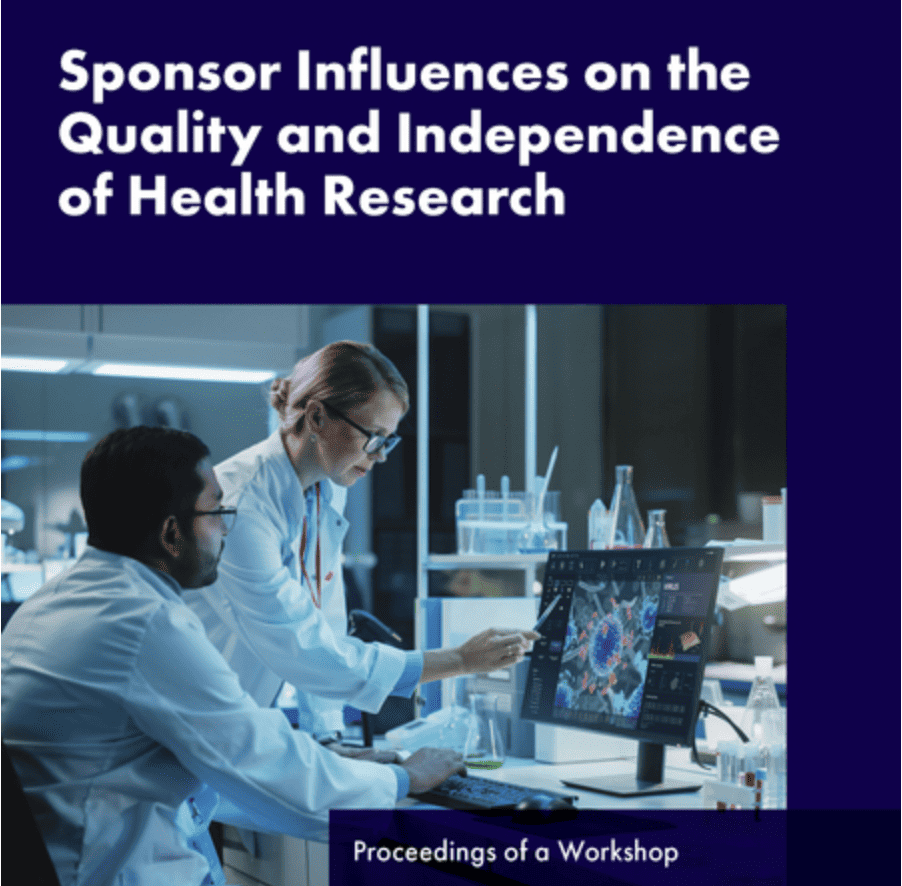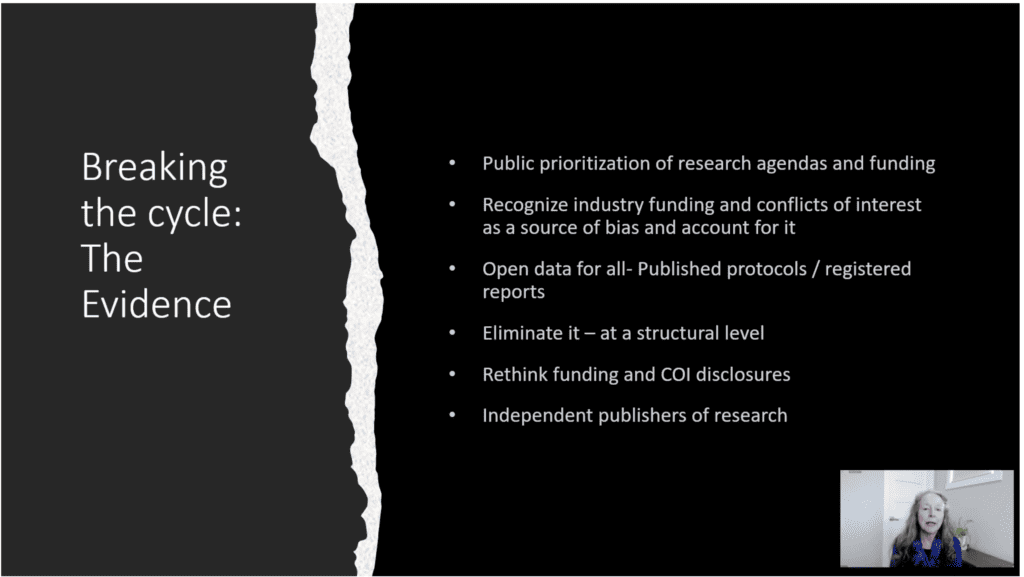In an important report released today, the National Academies of Sciences, Engineering and Medicine (NASEM) examined a hidden problem that hurts us all: funders’ influence that detracts from the quality and independence of health research.
The report is based on a three-day workshop on the many ways that funding sources (especially corporate funders) can influence and impair research quality and outcomes. These include influencing investigative scope, specific questions posed, experimental design, and principal investigator appointments, as well as bias in reporting, analysis, dissemination, communication, data availability and replication.
U.S. Right to Know Executive Director Gary Ruskin participated in a panel to discuss Where are the points of influence on scientific research? Ruskin said: “The message has to come from the top, from our President, from our Congress, from our governors, from our state legislatures. We have to tell the truth to the American people that our current health evidence base may well not be that reliable, and that as a matter of federal and state policy, we are going to do better, we are going to build a health evidence base that we the people can trust and believe in, and that means one that is as free as possible from commercial influences. And especially that our regulatory decisions and policy must be based on clean and uncorrupted science. We just have to do this. So many lives are at stake. We just can’t allow corporate PR and product defense to pass as science anymore.”

Notable presentations from the workshop
Lisa Bero, PhD, Chief Scientist, Center for Bioethics and Humanities, at the University of Colorado Anschutz Medical Campus, Overview of the Evidence on Sponsor Influence
David Michaels PhD, MPH, epidemiologist and professor at the George Washington University School of Public Health. He served as Assistant Secretary of Labor for the Occupational Safety and Health Administration, 2009-2017, and Assistant Secretary of Energy for Environment, Safety and Health 1998-2001. How to Protect Public Health in the Face of Disinformation
Martin McKee, CBE, MD, president of the British Medical Association and Professor of European Public Health at the London School of Hygiene and Tropical Medicine; he is also past Chair of the UK Society for Social Medicine and President of the European Public Health Association. What You Don’t See That Counts: A Peek Behind the Smokescreen
Laura A. Schmidt, PhD, Professor Health Policy in the School of Medicine at the University of California at San Francisco. Industry Funding Bias in the Case of Nutrition Science

Slide from Dr. Lisa Bero’s presentation at the NASEM workshop, discussing solutions for addressing with sponsor influences on the quality and independence of health research. “We certainly know from the very strong evidence from the meta research that bias related to sponsorship exists,” Dr. Bero said.









